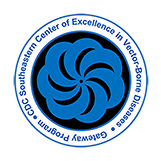Meet The Team
Georgia Department of Health, Dr. Kelly and Dr. Nguyen
Vector-Borne & Zoonotic Diseases Team, Environmental Health Section, 13-414 Georgia Department of Public Health, Atlanta, Georgia SECVBD Partners
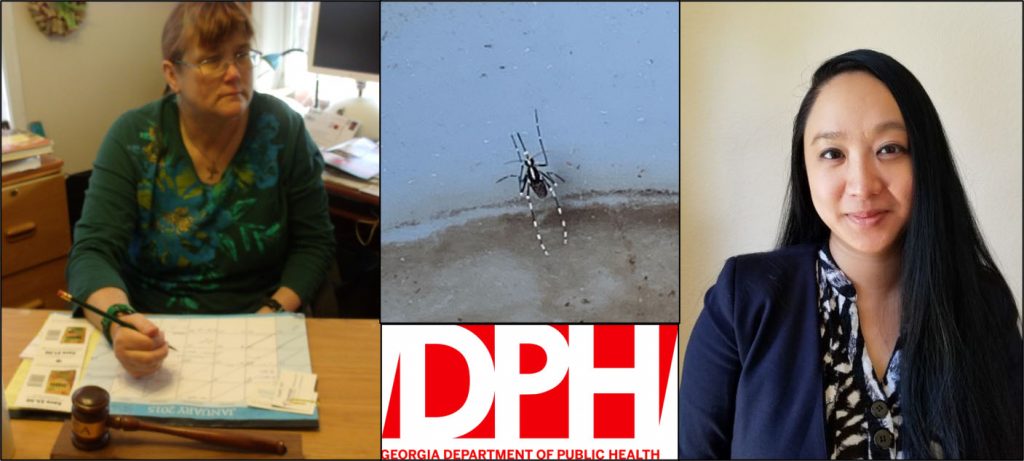
Rosmarie Kelly, Ph.D., M.P.H. and Thuy-vi “Tiffany” Thi Nguyen Ph.D., M.P.H. are entomologists and epidemiologists at the Georgia Department of Public Health (GDPH) and partners with the CDC Southeastern Center of Excellence in Vector Borne Diseases (SECVBD). Dr. Kelly was interested in veterinary medicine and animal behavior at a young age, but it wasn’t until undergrad where she was introduced to parasitology through a mentor who studied how animal behavior affects the parasites they have involving malaria. After undergrad Dr. Kelly studied parasitology in fish species for her Masters at University of Massachusetts Amherst, and then earned her PhD in medical entomology studying malaria and mosquitoes at University of Massachusetts Amherst. Dr. Kelly then joined the East Middlesex Mosquito Control Project in Massachusetts where she was able to further explore medical entomology in the context of public health needs, and then continued on to Kent State University to earn her MPH with a concentration in GIS. After her course studies, she joined the GDPH where today she is a part of the Vector-Borne & Zoonotic Diseases Team in the Environmental Health Section.
Dr. Nguyen was initially interested in pre-medical or pre-veterinary track as an undergraduate student and was able to participate in a summer program that first sparked her interest in vector-borne diseases and public health. During a summer in undergrad, Dr. Nguyen traveled to Vietnam with other students and medical professionals and worked to help people through providing medical attention and also outreach and education. She was also able to see the effects of vector-borne diseases first hand and wanted to pursue a career to further help people. Dr. Nguyen attended University of Georgia (UGA) for her MPH with a concentration in infectious disease epidemiology. She then went on to work for the department of health focusing on chronic diseases, before deciding to go back to school for her PhD. Dr. Nguyen contacted Dr. Brian Forschler who became her advisor for her dissertation focused on mosquitoes. After her PhD, Dr. Nguyen went on to join GDPH as part of the Vector-Borne & Zoonotic Diseases Team in the Environmental Health Section.
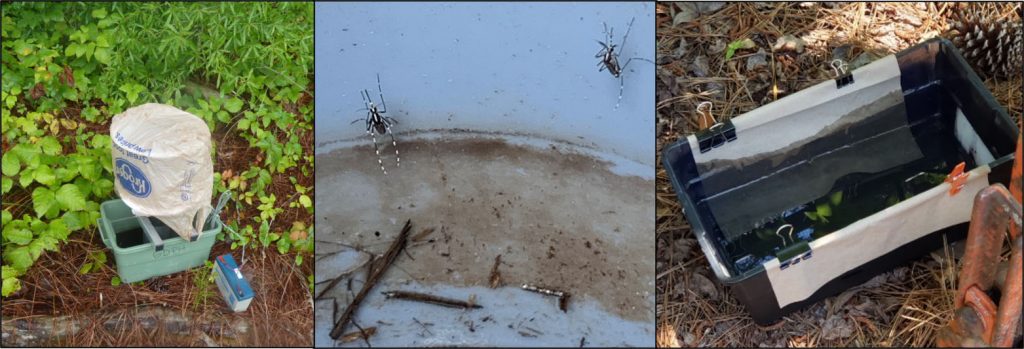
Dr. Kelly and Dr. Nguyen have several projects going on throughout Georgia including surveillance, resistance monitoring, and outreach. Most recently, they were able to create the vector surveillance coordinator program. This program allowed Dr. Kelly and Dr. Nguyen to team up with five vector surveillance coordinators, as well as environmental health specialists to collect three years of mosquito surveillance data from every county in Georgia. In fact this summer they were able to host two SECVBD interns to help with this surveillance study.
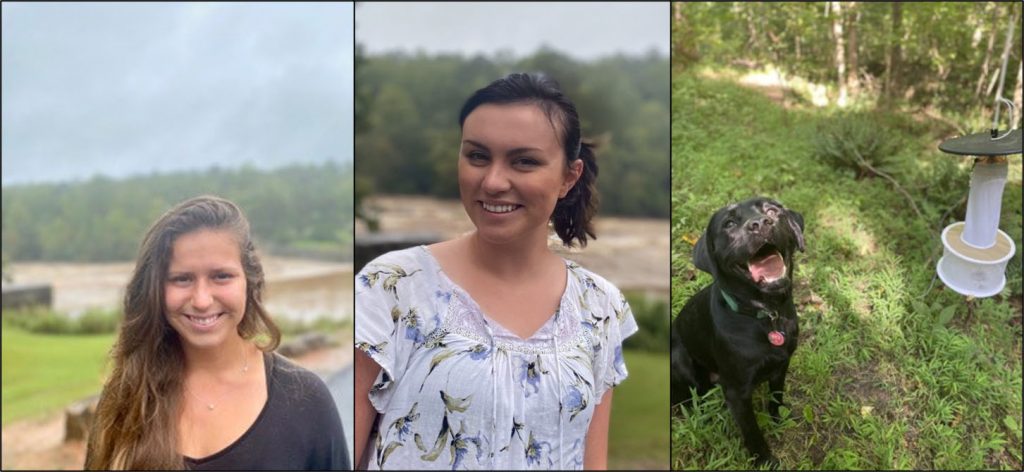
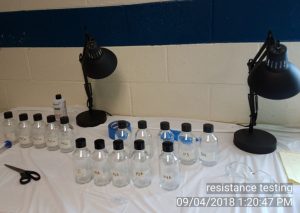 Dr. Kelly and Dr. Nguyen’s insecticide resistance study is a collaboration with Richmond County and the McAllister Team from the CDC (CDC Bottle Bioassay). Through CDC Hurricane Crisis funding, GDPH was able to support an insectary in Richmond County to allow mosquito eggs collected throughout the state to be reared in a controlled environment under the same conditions. Once mature, the mosquitoes are then tested for resistance using bottle bioassays. Monitoring insecticide resistance is vital to knowing which pesticides will be useful for mosquito control as well as understanding potential causes of resistance like proximity to agricultural lands.
Dr. Kelly and Dr. Nguyen’s insecticide resistance study is a collaboration with Richmond County and the McAllister Team from the CDC (CDC Bottle Bioassay). Through CDC Hurricane Crisis funding, GDPH was able to support an insectary in Richmond County to allow mosquito eggs collected throughout the state to be reared in a controlled environment under the same conditions. Once mature, the mosquitoes are then tested for resistance using bottle bioassays. Monitoring insecticide resistance is vital to knowing which pesticides will be useful for mosquito control as well as understanding potential causes of resistance like proximity to agricultural lands.
Georgia Southern University professor Dr. Chris Rustin along with graduate students, student workers, and Angie Penden MPH, recently compiled a list of mosquito control programs in Georgia. From this survey Dr. Nguyen has been able to contact groups to introduce themselves and offer to speak to them about mosquitoes in Georgia, proper sampling methods, pesticide types, efficacy of pesticides, insecticide resistance program, and answer any questions they may have.
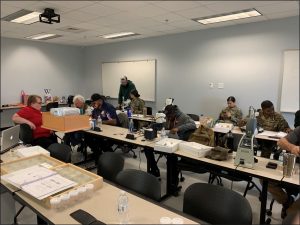 They are passionate about outreach to educate and build awareness on vector-borne diseases and control methods. Dr. Kelly and Dr. Nguyen both are a part of the Georgia Mosquito Control Association Board, and have participated in trainings that provide CEUs for public works and commercial applicators. Dr. Nguyen has attended several meetings to talk about their insecticide resistance monitoring to inform county boards, mayors, and others on recommendations on what to use for mosquito control and best methods to prevent resistance.
They are passionate about outreach to educate and build awareness on vector-borne diseases and control methods. Dr. Kelly and Dr. Nguyen both are a part of the Georgia Mosquito Control Association Board, and have participated in trainings that provide CEUs for public works and commercial applicators. Dr. Nguyen has attended several meetings to talk about their insecticide resistance monitoring to inform county boards, mayors, and others on recommendations on what to use for mosquito control and best methods to prevent resistance.
Although the majority of their work focuses on mosquito control they have aided in tick studies including a collaboration with the Georgia Department of Agriculture to help collect ticks on animals from veterinarians. This form of passive data collection can be informative to which ticks may be found in different locations or even commonly biting companion animal ticks.
Check out these publications by Dr. Kelly and Dr. Nguyen:
Georgia’s Rapid Expansion of Mosquito Surveillance in Response to Zika Virus
WingBeats, Spring 2008. The Coming Storm (pp 10-13)
Discovery of Culex coronator in Georgia
Wing Beats, Winter 2015 (Georgia Issue)
Follow the Georgia Mosquito Control Association on Twitter and join their group on Facebook

